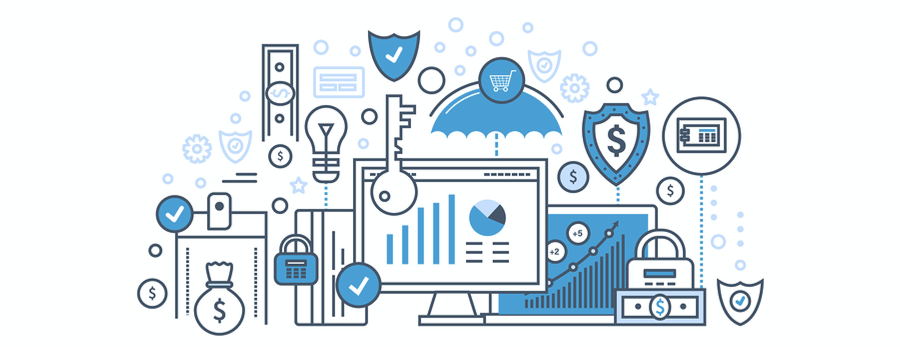The Importance of Data Protection in the Workplace
What happens at work, stays at work — well, not so much. This is especially true when it comes to not just your personal data, but also those of clients, employees, advertisers and much more. With more data leaks and hacker attacks happening daily, it’s no longer a question of ‘if’ your data will be lost and sold on the darknet. It’s simply a matter of ‘when’ and what you are going to do about it.
With all of this in mind, do you know why data protection matters at your workplace?
Data protection in the workplace can no longer be an afterthought. In today’s world, many businesses have an online presence and store information digitally. No matter what you’re selling, you store data digitally, and that’s why data breaches have hit record numbers in recent years.
Even small businesses can be targets for data breaches. In fact, small businesses are more commonly targeted sometimes, because they often don’t have as many security measures in place for their data.
Don’t get caught off guard by hackers. Instead, keep reading to learn why data protection matters, and what you can do to protect your valuable data.

1. Human Errors Happen
It’s tempting to think that as long as you have the right company guidelines, you won’t need data protection. You know your employees would never break the rules and make data available to people who shouldn’t have it. But has it occurred to you that they might accidentally create a data breach?
Everyone can make mistakes, even your most experienced employees. And the consequences of human error while handling data can be dire. What happens when a personal phone used for some business purposes gets stolen? How about when someone accidentally posts a password on their social media account?
Human error can take many different forms. You should definitely educate your employees on how to avoid security breaches. This includes guiding them on best practices, password protection, and more. But this won’t eliminate the room for mistakes.
Have a layered system of protection measures, so a single mistake can’t make your data completely available to the world. That way, human errors won’t create massive problems.
2. It Could Be Legally Required
Did you know that legally, you must protect your data in certain areas?
According to the European Data Protection Act, you have to take certain steps to keep people’s data safe. This means, among other things, that you can only use data in approved ways, that you can’t store it longer than you need it, and that you have to keep it secure.
Of course, the Data Protection Act doesn’t apply everywhere. But many governments have laws regarding the use of data, and you can also be held liable for data breaches. Even if data protection isn’t required by law, you don’t want to get sued in the event of a breach.
3. Employees Can Use Data for Revenge
The bigger and broader your team of employees, the greater the chances that one of them will break the rules in a serious way. No matter how much you trust your team, though, you should keep in mind that a dissatisfied employee with access to data is a huge liability.
No matter how great your company culture is, there can still be that one employee who has issues. Maybe their problem is with their job description, or a specific person they work with. No matter what the reason is, you don’t want to give a revenge-seeking employee the power to use data against you.
An angry employee with access to data might deliberately share it or use it in ways to harm your business. For some small businesses, a data breach can spell the end.
Make sure to keep employee account privileges tightly controlled, so no one has more access than they need. This helps reduce the chances of a deliberate breach. If an employee is no longer working for you, be sure that their account privileges get shut down right away.
4. Your Reputation Can Suffer
Even minor data breaches can have a huge impact on a brand’s reputation.
If your customers’ data has been compromised — even if it doesn’t lead to anything bad happening — they’ll feel like they can’t trust you. As the word spreads, your company will become known as the one that doesn’t handle customer information with care. It’s very hard to get your reputation back after an event like this.
5. Data Must Be Kept Accurate
Without data protection, inaccuracies in the data can start to create problems. Even if there’s never a data breach, you might find yourself working with outdated, inaccurate information because you didn’t effectively protect what you had.
You need complete data that’s reliable and accurate. One way to achieve this is to always have backups of your data, so replication won’t leave you working with data that’s different from the original. Lost data can also be a huge liability — click here to discover more about data protection.
6. Employees Might Use Their Own Devices
Does your company allow employees to “bring your own device,” or BYOD? Then you definitely need more security measures.
Today, it often makes sense to allow BYOD. You don’t have to buy computers and smartphones for business purposes when people can use their own. Employees can often work faster on the devices they’re familiar with, too.
However, the risk is that sensitive data that’s used on these devices can easily get compromised. To avoid this, you’ll want to set some BYOD standards. For example, you can require employees to put a password protection on any device they’ll use for work purposes. That way, if it’s lost or stolen, other people can’t access the information.

Implementing Data Protection in the Workplace
Now that you can see why it’s important, you need to decide what kinds of data protection in the workplace is right for your company.
The best data safety strategies will vary depending on your industry, the size of your business, and more. But a carefully planned out data protection strategy is always necessary, in all industries, and in all business sizes.
Need to build a site that will keep sensitive information safe? I can help — learn more about my web and site development services here.






